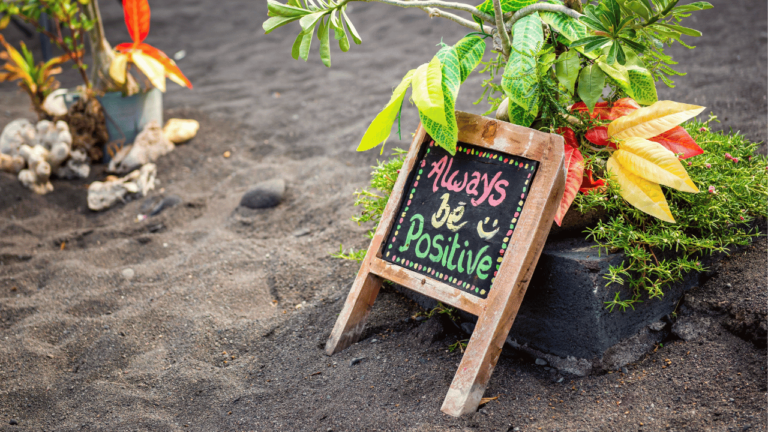Self-care practices messages Taking care of yourself is a big step in loving yourself. The path to finding your true self gets brighter with the wisdom of those who’ve been there. This article will share powerful self-care messages to help your soulmate grow and feel better emotionally.
These messages focus on accepting and loving yourself, being kind to yourself, and finding balance. They aim to help your partner discover themselves and bounce back from tough times. We’ll look at what experts, authors, and public figures say about their self-care journeys. They show how self-care can give your soulmate the strength and peace they need to face life’s ups and downs.
Key Takeaways
- Discover empowering self-care practices messages to support your soulmate’s well-being
- Explore strategies for fostering self-acceptance, self-love, and self-compassion
- Learn how to cultivate balance and mindfulness in your soulmate’s life
- Uncover the transformative power of self-care practices for personal growth and emotional well-being
- Gain insights from experts, authors, and public figures who have shared their self-care journeys
The Essence of Self-Care
Self-care isn’t just about enjoying things like bubble baths or green juices. It’s a way to take care of your mind, body, and spirit. This helps you feel emotionally well, handle stress, and keep up healthy habits. Experts like Sonja Lyubomirsky and Katie Krimer say it’s more than just pampering. It’s about loving, accepting, and being kind to yourself every day.
The World Health Organization says self-care is about taking care of your health. It means doing things to stay healthy, prevent sickness, and deal with illness or disability. A 2018 study looked at self-care as actions people choose to take. These actions help them stay well and feel good.
Nurturing Holistic Wellness
Self-care is key to handling stress, avoiding burnout, and fighting compassion fatigue. These are big challenges for those in healthcare. By focusing on your physical, mental, and emotional health, you can live a happier and more resilient life.
- Physical self-care means eating right, drinking plenty of water, and exercising regularly.
- Emotional self-care is about setting limits, being around positive people, and spending time with loved ones.
- Psychological self-care includes learning new things, thinking deeply about yourself, and growing personally and professionally.
- Spiritual self-care involves meditation, prayer, being thankful, and living in the moment.
Thinking about self-care in these different areas helps you handle stress better. It leads to a life that’s balanced and truly rewarding.
Cultivating Self-Acceptance and Self-Love
Self-acceptance and self-love are key to taking good care of ourselves. They help us accept who we truly are and celebrate what makes us special. People like Rupi Kaur, Beyoncé, and Brené Brown teach us to ignore our doubts and live happier lives.
Accepting ourselves means seeing and loving all parts of us, even the ones we don’t like. This journey helps us understand ourselves better, leading to peace and being true to ourselves. As Brené Brown says, “You are imperfect, you are wired for struggle, but you are worthy of love and belonging.”
- Practice Positive Affirmations – Start each day with affirmations like “I am enough” or “I deserve love.”
- Forgive Yourself – Release past mistakes to open the door to self-love.
- Celebrate Small Wins – Recognize daily achievements, however small they may seem.
- Set Boundaries – Protect your energy by setting limits in relationships.
- Journal – Write about your thoughts, feelings, and experiences to process and understand them.
- Practice Gratitude – List things you appreciate about yourself each day.
- Embrace Imperfections – Remember that flaws make us human and unique.
- Meditate – Focus on self-compassion meditations to connect with yourself.
- Spend Time Alone – Embrace solitude as a chance to know yourself better.
- Compliment Yourself – Look in the mirror and give yourself sincere compliments.
- Accept Your Feelings – Allow all emotions without judgment.
- Create a Self-Care Routine – Develop daily habits that nurture your well-being.
- Limit Comparison – Remind yourself that everyone’s journey is different.
- Focus on Personal Growth – Commit to lifelong learning and self-improvement.
- Surround Yourself with Positivity – Spend time with supportive and loving people.
- Be Mindful – Stay present and appreciate the moment without judgment.
- Practice Patience – Accept that self-love is a journey and allow yourself time.
- Acknowledge Your Strengths – Make a list of things you’re good at and revisit it often.
- Express Yourself Creatively – Use art, writing, or music to connect with your inner self.
- Speak Kindly to Yourself – Replace negative self-talk with compassion.
- Embrace Vulnerability – Open up to others and be honest about who you are.
- Focus on Inner Qualities – Celebrate inner qualities like kindness, resilience, and empathy.
- Release Negative Energy – Practice activities that help you let go, like exercise or dance.
- Recognize Your Worth – Reflect on how your presence enriches others’ lives.
- Challenge Self-Doubt – Counter self-critical thoughts with encouraging words.
- Celebrate Your Progress – Take time to see how far you’ve come in your journey.
- Let Go of Perfectionism – Embrace the idea that “done” is better than “perfect.”
- Trust Your Intuition – Listen to your inner voice and trust your decisions.
- Unplug – Take breaks from social media to reconnect with yourself.
- Appreciate Your Body – Thank your body for what it allows you to do every day.
- Practice Self-Compassion – Treat yourself with the same care as you would a friend.
- Visualize Success – Imagine yourself thriving and achieving your dreams.
- Set Realistic Goals – Focus on achievable, meaningful goals to stay motivated.
- Learn from Failure – See mistakes as growth opportunities.
- Practice Self-Acceptance Mantras – Recite statements like “I accept myself just as I am.”
- Focus on What You Can Control – Let go of things you cannot change.
- Celebrate Your Journey – Take pride in the steps you’re taking, regardless of the outcome.
- Practice Generosity – Helping others can reinforce self-worth.
- Seek Inspiration from Role Models – Learn from figures who embody self-love.
- Read Books on Self-Love – Explore authors like Brené Brown for guidance.
- Set Daily Intentions – Start each day with a purpose focused on positivity.
- Declutter Your Space – Create a nurturing environment that brings you peace.
- Do Things You Love – Engage in hobbies or activities that bring joy.
- Limit Self-Criticism – Challenge negative thoughts with more balanced perspectives.
- Practice Self-Care Guilt-Free – Remind yourself that caring for yourself isn’t selfish.
- List Qualities You Admire – Identify characteristics you respect in others and nurture them in yourself.
- Reflect on Achievements – Regularly look back on accomplishments as reminders of your strength.
- Find a Mentor or Support Group – Surround yourself with people on similar journeys.
- Practice Acceptance of Others – Embracing others’ imperfections can help with self-acceptance.
- Celebrate Your Uniqueness – Recognize the beauty in what makes you different.
Self-love means being kind and caring towards ourselves, just like we are to our friends. Beyoncé tells us, “Love yourself, because when you love yourself, the world will love you back.”
Positive affirmations, growing personally, and being kind to ourselves help us accept and love ourselves. By seeing our strengths and weaknesses, we can reach our full potential and live more honestly and fully.
Getting to self-acceptance and self-love is hard, but it changes us for the better. It leads to more self-esteem, personal growth, and better health. As we learn to accept ourselves, we make deeper connections, have healthier relationships, and live more empowered lives.
Practicing Self-Compassion
Self-care is deeply connected to self-compassion. It means treating ourselves with kindness and understanding, just like we would a close friend. Kristin Neff, a well-known psychologist, says this can help fight depression and anxiety. It also boosts happiness, optimism, and connections with others.
- Speak Kindly to Yourself – Use encouraging and compassionate language with yourself.
- Allow Yourself to Feel – Accept all emotions without judgment, whether they’re positive or negative.
- Forgive Yourself for Mistakes – Release guilt and accept that everyone makes mistakes.
- Use Self-Compassion Phrases – Say things like “I am doing my best” or “I deserve kindness.”
- Focus on Progress, Not Perfection – Celebrate small steps instead of expecting immediate results.
- Write a Self-Compassion Letter – Address yourself with kindness about a current struggle.
- Take Breaks – Allow yourself to rest when feeling overwhelmed, just like you would a friend.
- Practice Loving-Kindness Meditation – Extend compassion to yourself and others during meditation.
- Challenge Self-Critical Thoughts – Replace harsh self-judgment with gentler perspectives.
- Practice Mindful Breathing – Use deep breaths to ground yourself in the present moment.
- Recognize Your Limits – Allow yourself to set boundaries and say “no” when necessary.
- Avoid Comparison – Remember that everyone’s journey is unique.
- Reflect on Shared Humanity – Recognize that struggles are a part of life for everyone.
- Be Gentle with Your Body – Show kindness to yourself through healthy, nourishing choices.
- Engage in Self-Care – Take time each day for activities that nurture your well-being.
- Acknowledge Achievements – Reflect on your accomplishments, no matter how small.
- Redirect Perfectionist Thoughts – Remind yourself that imperfection is part of being human.
- Learn from Setbacks – View mistakes as learning opportunities rather than failures.
- Create a Soothing Space – Set up a place in your home where you can relax and feel safe.
- Write Down Strengths – List qualities you love about yourself to boost self-appreciation.
- Encourage Yourself Like a Friend – Talk to yourself with the compassion you’d offer a loved one.
- Be Mindful of Triggers – Recognize situations that might lead to self-criticism.
- Reframe Failures – Remind yourself that everyone faces setbacks.
- Practice Gentle Humor – Use humor to lighten up difficult moments.
- Find Comfort in Nature – Spend time in calming environments like parks or beaches.
- Develop a Mantra – Create a comforting phrase, like “I am enough.”
- Create a List of Self-Compassion Practices – Keep this list handy to revisit on tough days.
- Surround Yourself with Support – Spend time with people who lift you up.
- Acknowledge Emotional Pain – Recognize your feelings without trying to suppress them.
- Challenge Unrealistic Expectations – Remind yourself that it’s okay not to be perfect.
- Prioritize Self-Care – Treat yourself to a day off or an activity you love without guilt.
- Journal Your Thoughts – Write down emotions without judging them.
- Practice Mindful Eating – Choose foods that make you feel good and enjoy each bite.
- Treat Yourself – Indulge in something you love without feeling guilty.
- Accept Compliments – Receive kind words from others without downplaying them.
- Celebrate Efforts, Not Just Results – Recognize the hard work you put into tasks.
- Find Role Models of Self-Compassion – Learn from people who embrace kindness toward themselves.
- Recognize Growth in Challenges – See difficulties as opportunities for growth.
- Allow Room for Play – Engage in hobbies or activities that bring you joy.
- Take a Digital Detox – Give yourself breaks from social media to reconnect with yourself.
- Keep a Gratitude Journal – Write down things you appreciate about yourself and your life.
- Give Yourself Permission to Rest – Rest without feeling that you need to earn it.
- Celebrate Your Uniqueness – Embrace what makes you different and special.
- Create a Daily Self-Compassion Habit – Start each day with a small act of kindness toward yourself.
- Practice Visualization – Imagine yourself surrounded by compassion and support.
- Limit Exposure to Negativity – Distance yourself from people or environments that drain your energy.
- Focus on the Present Moment – Practice mindfulness to let go of past regrets and future worries.
- Recognize Your Resilience – Reflect on tough moments you’ve overcome as reminders of your strength.
- Thank Yourself – Acknowledge your efforts and express gratitude for showing up every day.
- Practice Loving Affirmations at Night – End each day with a comforting thought or affirmation.
Self-compassion has three main parts: self-kindness, recognizing we’re all human, and being mindful. Self-kindness means being gentle with ourselves when we fail or get hurt. Recognizing our shared human struggles helps us feel less alone. Mindfulness is about noticing our feelings without getting lost in them.
Cultivating Self-Compassion
Self-compassion is key for growing personally and emotionally. It can mean stopping negative thoughts, taking care of ourselves, or doing exercises that help us be kind to ourselves. As poet Audre Lorde said, caring for ourselves is crucial for our well-being and fighting against oppression.
Self-compassion isn’t about feeling sorry for ourselves or being selfish. It’s a powerful way to take care of ourselves and improve our lives. Princess Diana once said, “It’s better to be moderately rich and happy than very rich and unhappy.” Finding a balance between being kind to ourselves and understanding our feelings helps us grow emotionally and personally.
Self-Care Practices messages
Self-care is key to holistic wellness. It’s more than just bubble baths or green juices. It’s about taking care of your mind, body, and soul with purpose. Here are some inspiring self-care messages for your soulmate to help them on their wellness journey.
Self-care isn’t the same for everyone. It’s a personal journey that grows and changes. Encourage your partner to try out different self-care tips, wellness routines, and relaxation techniques. Let them know that their well-being is important and that taking time for personal growth and self-compassion is key to happiness and resilience.
- “Remember, taking a break is part of the journey. You deserve rest.”
- “Self-care is about nourishing yourself. Feed your soul with things you love.”
- “Set boundaries unapologetically; it’s how you protect your peace.”
- “You are allowed to prioritize yourself. Your well-being matters.”
- “Take time to connect with nature today, even if it’s a quick walk outside.”
- “Pause and breathe—sometimes the best self-care is simply being present.”
- “Self-care isn’t selfish. It’s how you fill your own cup so you can give to others.”
- “Invest in yourself today, whether through a quiet moment or a joyful activity.”
- “Listen to your body; it knows what it needs. Give it love and kindness.”
- “Celebrate small victories. Every step you take is part of your growth.”
- “Your needs are important. Don’t forget to make time for them.”
- “Take care of your mental space like you would a precious garden.”
- “Being productive is great, but so is being kind to yourself.”
- “It’s okay to not have everything figured out—take it one step at a time.”
- “Treat yourself today in some way, big or small. You deserve it.”
- “Practice mindfulness to ground yourself and find joy in the present.”
- “Say no when you need to; your energy is precious.”
- “Nurture yourself with positive affirmations; you are worthy and loved.”
- “Rest doesn’t mean quitting; it’s a part of sustainable growth.”
- “Your time alone is valuable; use it to recharge and reflect.”
- “Don’t rush the process. Self-care is a journey, not a destination.”
- “Today, focus on progress rather than perfection. Every step counts.”
- “Self-care is making choices that bring you peace and happiness.”
- “Honor your feelings—they’re valid and deserve attention.”
- “You don’t have to do it all. Prioritize what matters most to you.”
- “Protect your mental peace by letting go of things you can’t control.”
- “It’s okay to outgrow people and places as you grow.”
- “Surround yourself with positive energy that uplifts you.”
- “Taking care of yourself creates space to care for others more fully.”
- “Treat your mind with as much kindness as you would a loved one.”
- “Be proud of how far you’ve come, even if you’re not where you want to be.”
- “Spend time on activities that genuinely make you happy.”
- “Mindful movement is self-care. Take time to stretch, breathe, and move.”
- “Embrace rest as a way to restore your energy and creativity.”
- “Try something new today, no matter how small. Growth happens outside your comfort zone.”
- “Create a space in your day that is just for you, no matter how brief.”
- “Allow yourself to dream big, and nurture those dreams with self-belief.”
- “Self-care includes making time for things that inspire and motivate you.”
- “Celebrate your unique qualities—they make you beautifully you.”
- “Balance is key. Rest when you need to, push forward when you’re ready.”
- “Nourish your body with food that makes you feel good and energized.”
- “You’re not required to have it all together. Life is about learning.”
- “Trust yourself and your ability to overcome challenges.”
- “Self-care is a gentle reminder that you’re worth every ounce of effort.”
- “Taking time for yourself helps you give your best self to others.”
- “Find peace in the little moments—they’re often the most meaningful.”
- “Allow yourself to let go of what no longer serves you.”
- “Be patient with yourself; true change takes time.”
- “Embrace self-compassion as a daily practice, not a luxury.”
- “Remember, you are enough as you are. Self-care is about embracing that truth.”
Work-life balance is crucial for a happy life. Encourage your soulmate to set boundaries, disconnect from tech, and enjoy moments of mindfulness and self-reflection. Together, you can create a supportive space that helps both of you feel emotionally, mentally, and physically well.
Self-care empowers your partner to put their needs first. With kindness and care, you can help them start a journey of self-discovery and growth. Remember, caring for ourselves helps us care for those we love better.
Finding Balance and Mindfulness
Getting a good work-life balance and being mindful is key to taking care of ourselves. Today, we often get caught up in our jobs, leaving little time for ourselves. But, as Ray Bradbury reminds us, “Life is trying things to see if they work.” By trying different work-life balance tips and relaxation routines, we can find what works best for us.
One important thing is to be kind to ourselves. As Oprah Winfrey said, “The greatest gift you can give yourself is time.” Taking breaks, being mindful, and growing personally can help us feel better emotionally and spiritually. This makes us better at work and in our personal lives.
- “Balance is not something you find; it’s something you create.”
- “Take small breaks throughout your day to recharge and refocus.”
- “Mindfulness isn’t about stopping thoughts; it’s about learning to observe them without judgment.”
- “Give yourself permission to rest. Productivity thrives on balance.”
- “Life is as much about the quiet moments as it is about the big ones.”
- “Release the need to rush—there’s beauty in a slower pace.”
- “Create a daily ritual that grounds you, like morning meditation or evening gratitude.”
- “Set boundaries with kindness and intention—they protect your peace.”
- “Breathe deeply; let each breath remind you of the present moment.”
- “Choose presence over perfection; life happens here and now.”
- “Mindfulness invites you to live each moment with awareness and compassion.”
- “Balance is when you give equal attention to your work and well-being.”
- “Allow yourself to unplug from work; true refreshment happens offline.”
- “Prioritize time for things that nourish your spirit and make you smile.”
- “Mindful living means cherishing each moment without rushing to the next.”
- “Make time to notice the small things—they add depth to life.”
- “Balance doesn’t mean equal; it means honoring what matters most in the moment.”
- “Rest is not a reward; it’s essential to a life well-lived.”
- “Your work will be there tomorrow; your well-being deserves attention today.”
- “Be as kind to yourself as you would a friend learning to balance life.”
- “In moments of stress, pause and breathe—it’s a powerful reset.”
- “Mindfulness teaches us that small, conscious choices create lasting change.”
- “Find joy in simple pleasures—each moment holds beauty if we look.”
- “Balance is about creating harmony, not fitting everything in perfectly.”
- “Acknowledge your needs and prioritize self-care; you’re worth it.”
- “Practicing gratitude shifts focus from doing to simply being.”
- “Set a daily intention that aligns with your desire for balance.”
- “Carve out time to explore hobbies; creativity fuels the soul.”
- “Balance isn’t about doing everything; it’s about choosing what truly matters.”
- “Your energy is precious. Use it wisely and replenish it often.”
- “Be present in all you do, whether working, resting, or creating.”
- “Balance doesn’t come from outside; it’s nurtured from within.”
- “Embrace imperfection—it’s a reminder that you’re human.”
- “Create mindful transitions between work and personal life.”
- “Your peace of mind is more valuable than any task on your to-do list.”
- “Prioritize what adds value to your life, and let go of the rest.”
- “Let mindfulness be a gentle reminder to live authentically and fully.”
- “Small, mindful moments accumulate into a balanced life.”
- “Balance looks different for everyone—define what it means for you.”
- “Pause to appreciate how far you’ve come and where you’re headed.”
- “Embrace flexibility as you create routines that nourish you.”
- “Balance is a journey, not a destination; allow it to ebb and flow.”
- “Replace busyness with presence. Life is richer when we slow down.”
- “Mindfulness invites you to engage with life rather than rushing through it.”
- “Remember that saying ‘no’ can be a form of self-respect.”
- “Make room for moments of joy—they fuel resilience and gratitude.”
- “True balance is being fully present in whatever you’re doing right now.”
- “Focus on what’s within your control, and let go of the rest.”
- “Live life with intention; each day is an opportunity to create balance.”
- “Balance is finding peace in the midst of chaos; mindfulness is the way.”
- Explore relaxation routines that help you unwind, such as meditation, journaling, or engaging in a favorite hobby.
- Set boundaries and learn to say “no” to demands that may compromise your work-life balance.
- Incorporate mindfulness exercises into your daily routine, even if it’s just a few minutes of deep breathing or a short walking meditation.
By finding balance and being mindful, we can become more aware of ourselves, resilient, and joyful. The path to well-being is not the same for everyone. By trying different things and seeing what works, we can build a self-care routine that is fulfilling and lasting.
Conclusion
Self-care practices messages As we end this inspiring journey, let’s see how self-care changes us. By focusing on our emotional health, using positive affirmations, and finding personal growth resources, we can live healthier and happier lives. This helps us and our soulmates too.
This article shared self-care tips that can boost our self-love and acceptance. By doing things that feed our mind, body, and spirit, we become stronger and more peaceful. This strength helps us handle life’s ups and downs better. It also helps us build strong bonds with our loved ones.
Self-care isn’t just about us; it’s crucial for our well-being. By taking care of ourselves, we not only improve our lives but also help those around us. Encourage your soulmate to join you in this journey and discover self-care’s power together. With a focus on healthy habits and deepening your connection, you’ll find personal growth, resilience, and support. Start this journey and see the amazing changes in you and your relationships.





















